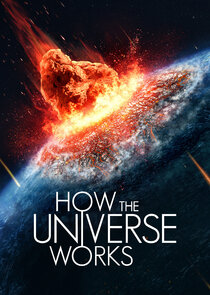Michael R. Rampino is a Geologist and Professor of Biology and Environmental Studies at New York University, known for his scientific contributions on causes of mass extinctions of life. Along with colleagues, he's developed theories about periodic mass extinctions being strongly related to the earth's position in relation to the galaxy. "The solar system and its planets experience cataclysms every time they pass "up" or "down" through the plane of the disk-shaped galaxy." These ~30 million year cyclical breaks are an important factor in evolutionary theory, along with other longer 60-million- and 140-million-year cycles potentially caused by mantle plumes within the planet, opining "The Earth seems to have a pulse," He is also a research consultant at NASA's Goddard Institute for Space Studies (GISS) in New York City.
Rampino's research has been concentrated in several areas including: studies of climate change on various timescales; the products and dynamics of volcanic eruptions and their effects on the global environment; and the relationship of large asteroid and comet impacts, and massive flood-basalt volcanism,[with mass extinctions of life.
His most recent work has sought a connection between geologic events and astronomical processes, including encounters of Earth with dark matter in the Galaxy.
Rampino's interest in Astrobiology is evidenced by the text, "Origins of Life in the Universe", co-authored with Robert Jastrow (Cambridge University Press, 2008), and a new book, "Cataclysms: A New Geology for the 21st Century" (Columbia University Press, 2017).
Rampino received his B.A. from Hunter College of CUNY and a Ph.D. in geological sciences from Columbia University. He was a post-doc at the NASA, Goddard Institute for Space Studies in New York City and Lamont–Doherty Earth Observatory in Palisades, New York studying climate change. He was an Associate Research Scientist at the NASA, Goddard Institute for 5 years, studying the effects of volcanic eruptions on climate, before taking up his present position at NYU.
At New York University, Rampino teaches the popular astrobiology course, "Earth, Life & Time" on the evolution of the Universe. He won an NYU "Golden Dozen" teaching award in 2011. He was instrumental in convening three American Geophysical Union Chapman Conferences on "Volcanoes and Climate" in 1992 (Hilo, Hawaii), 2002 (Santorini, Greece) and 2012 (Selfoss, Iceland) and two international meetings on "Small Bodies in the Solar System" in Mariehamn, Sweden (1994) and in Hikon, Japan (1997). He has been a visiting professor at Tohoku University and Yamaguchi University in Japan, the University of Florence and University of Urbino in Italy, and the University of Vienna in Austria and a lecturer for the annual Urbino Summer School in Paleoclimatology.
Rampino's research has been funded by NASA, the United States Department of Energy, the American Philosophical Society, and the National Science Foundation.



